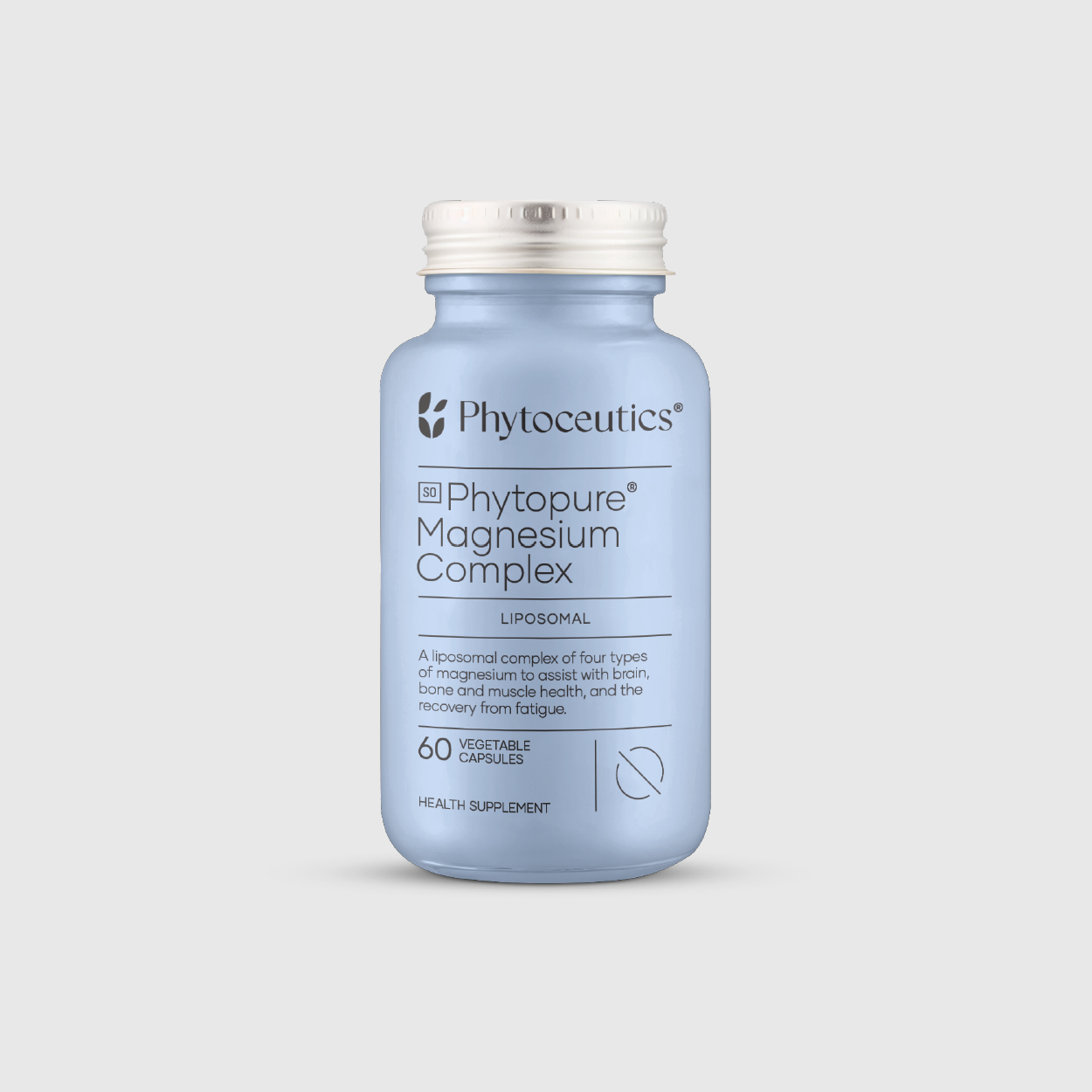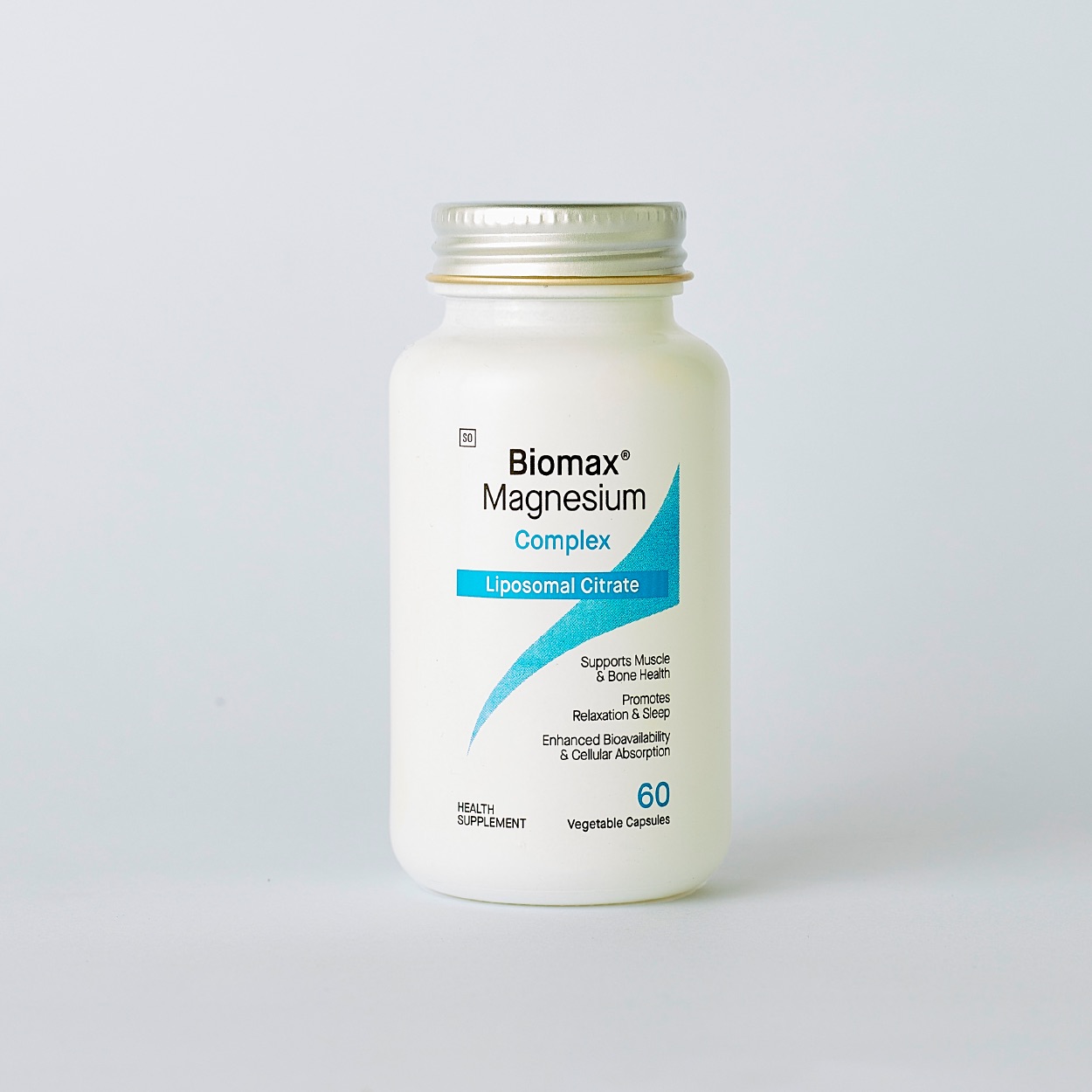While occasional stress is a normal physiological response, chronic stress can take a serious toll on both mental and physical health. It can contribute to anxiety, sleep disturbances, cardiovascular issues, and even digestive problems. Managing stress effectively is crucial, and one of the most essential yet often overlooked nutrients for stress relief is magnesium.
Magnesium plays a fundamental role in regulating the body’s response to stress. It helps balance neurotransmitter activity, supports healthy cortisol levels, and promotes relaxation. Magnesium bisglycinate, in particular, stands out for its ability to regulate stress hormones and promote rest and recovery. Furthermore, specific magnesium formulations, such as magnesium taurate provide additional benefits for heart health, and magnesium malate promotes energy metabolism, making them an all-encompassing solution for stress, quality relaxation, and overall vitality [1][11].
The Link Between Magnesium and Stress
Magnesium status is closely tied to stress levels. Stress depletes magnesium, and a magnesium deficiency can, in turn, exacerbate the effects of stress, creating a vicious cycle. Research has linked low magnesium levels to conditions such as migraines, fibromyalgia, chronic fatigue syndrome, and anxiety disorders [1].
When stress triggers the release of cortisol and adrenaline, magnesium helps modulate this response by regulating neurotransmitter activity in the brain [1]. It plays a crucial role in the function of the glutamatergic, serotonergic, and adrenergic neurotransmitter systems, helping to keep the nervous system balanced and preventing excessive excitability. Without sufficient magnesium, stress can feel overwhelming, leading to symptoms like heightened anxiety, muscle tension, irritability, and poor sleep [1].
Magnesium, ADHD, and Neurological Disorders
A strong correlation exists between magnesium deficiency and attention-deficit/hyperactivity disorder (ADHD). Studies have found that up to 95% of children with ADHD present with magnesium deficiency, and supplementation with magnesium and vitamin B6 significantly alleviates hyperactivity, aggression, and inattention [2]. Interestingly, symptoms reappear upon cessation of supplementation, reinforcing the necessity of consistent magnesium intake [3].
Magnesium for Relaxation and Recovery
Magnesium plays a crucial role in managing stress by influencing the body’s stress-response system. It helps regulate chemical messengers and increases GABA levels in the brain, promoting relaxation and reducing anxiety. Magnesium aids in activating the parasympathetic nervous system, responsible for calming the body, and supports the production of melatonin, the hormone that regulates sleep-wake cycles. A study found that older adults with insomnia who took magnesium supplements experienced improved sleep onset, duration, and efficiency [8].
For individuals engaged in physical activity, magnesium contributes to muscle recovery by supporting muscle contraction and relaxation. Its anti-inflammatory properties can help reduce muscle soreness post-exercise. A study examined the effects of magnesium supplementation (350 mg per day for 10 days) on muscle soreness and performance. The results indicated that magnesium significantly reduced muscle soreness at 24, 36, and 48 hours post-exercise compared to a placebo [7].
Phytopure® Magnesium Complex: A Comprehensive Approach to Stress and Energy
Phytopure® Magnesium Complex takes magnesium supplementation to the next level by incorporating multiple forms of magnesium for targeted benefits [11]. Magnesium Bisglycinate, found in Phytopure® Magnesium Complex, supports relaxation and cortisol regulation. By combining these forms, Phytopure® Magnesium Complex provides a holistic approach to stress management, supporting both relaxation and sustained energy levels.
While magnesium is often recognised for its calming effects, it is equally important for maintaining energy levels and physical performance. Magnesium malate, found in Phytopure® Magnesium Complex, supports ATP production, the body’s primary source of energy. This makes it particularly beneficial for individuals experiencing chronic fatigue or burnout [14].
Additionally, magnesium is crucial for cardiovascular health. Magnesium taurate, found in Phytopure® Magnesium Complex, helps maintain a healthy heart rhythm, supports blood pressure regulation, and reduces the impact of stress on the cardiovascular system [15]. Since chronic stress is a risk factor for heart disease, ensuring adequate magnesium intake can provide long-term protective benefits.
Additional Stress-Supportive Nutrients
While magnesium is a powerhouse for stress relief, combining it with other adaptogenic and mood-supportive supplements can amplify its benefits. Here are three additional nutrients that work synergistically with magnesium:
1. Ashwagandha
Ashwagandha is a well-known adaptogen that helps the body adapt to stress and reduce cortisol levels. Studies show that Ashwagandha supplementation can lower anxiety, improve resilience to stress, and enhance sleep quality [9]. A randomised, double-blind, placebo-controlled study assessed the effects of a standardised Ashwagandha root extract on sleep quality and anxiety. The results demonstrated significant improvements in sleep quality and reductions in anxiety levels among participants receiving the extract [16]. When combined with magnesium, it provides a powerful tool for managing chronic stress and supporting a balanced mood.
2. Saffron
Saffron has been shown to support serotonin levels, reduce symptoms of anxiety and depression, and promote emotional well-being. A 12-week randomised, double-blind, placebo-controlled trial demonstrated that saffron extract had a significant impact on depression and anxiety scores, comparable to the effects of traditional antidepressant medications, with fewer reported side effects [17]. When paired with magnesium, saffron can help maintain a calm, positive mindset even during stressful periods [10].
3. Probiotics
Stress is closely linked to gut health. Chronic stress can disrupt digestive function, leading to bloating, discomfort, and an imbalanced gut flora. Probiotics not only promote gut health, but their effect on the gut-brain axis can, in turn, help regulate the body’s stress response [10]. A translational study examined the effects of a probiotic complex on stress-related parameters. Over 28 days, participants experienced significant improvements in cognitive functions such as short-term memory and attention, as well as reductions in salivary cortisol levels, sleep quality, and anxiety [18].
Magnesium is an essential mineral with profound effects on stress resilience, neurological function, and overall health. Deficiency can exacerbate a wide range of conditions, from migraines to cardiovascular disease and neurodegeneration. Addressing magnesium deficiency through diet and supplementation offers a natural and effective strategy to enhance well-being, mitigate stress-related health risks, improve rest and recovery, and improve quality of life.
This unregistered medicine has not been evaluated by SAHPRA for its quality, safety, or intended use. Please always consult with a healthcare practitioner when starting a new supplement regimen.





